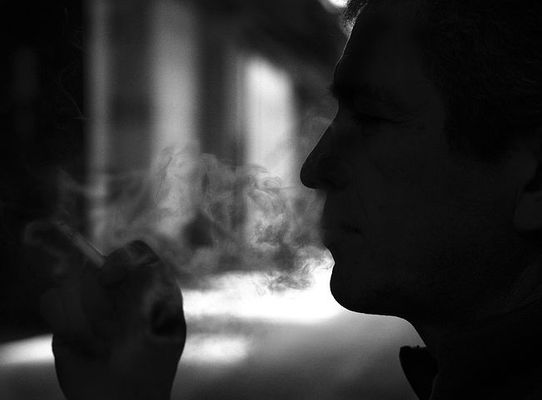2.14.2
Chapter 14: Key Themes
Key Themes in Chapter 14: Briony's Perspective on Events
Key Themes in Chapter 14: Briony's Perspective on Events
The chapter is told from Briony’s perspective and, as a result, we experience the range of emotions that she felt that night.


Briony's excitement
Briony's excitement
- There is a clear sense of excitement at all the drama (Briony refers to it as a “Christmas morning sensation”) and she admits to feeling “a sweet and inward rapture” (p179) at the importance her role as principal witness gives her.
- She thinks she deserves “praise” for finding Robbie’s letter and feels “a flash of outrage” when Robbie returns with the twins: “it was wrong of him to turn up with the twins like that, and she felt cheated. Who would believe her now…” (p184).


Briony's lack of sympathy
Briony's lack of sympathy
- Perhaps most chillingly, there is no sense of sympathy for Robbie in her description of him being taken away by the police at the end of the chapter.


Time shift: Briony's remorse
Time shift: Briony's remorse
- Once again, the chapter opens with a time shift into the future describing Briony’s feelings of “guilt” and “self-torture” caused by “her fragmented recollection” of events that night and morning.
- Throughout the chapter, the older Briony questions the accuracy of her memories of that night, an ironic contrast with the certainty she displays when accusing Robbie of being the assailant.
Key Themes in Chapter 14: Class Prejudice
Key Themes in Chapter 14: Class Prejudice
The chapter is told from Briony’s perspective and, as a result, we experience the range of emotions that she felt that night.


Emily's treatment of police
Emily's treatment of police
- Briony notes that Emily treats the policemen “as menials” i.e. as being of a much lower social status (p178) and there is evidence that the police officers defer to her when they allow her to read Robbie’s obscene letter to Cecilia.


Paul Marshall's status
Paul Marshall's status
- There is also the suspicion that Paul Marshall uses his powerful position in society to manipulate the police officers.
- Briony recounts how he offers them cigarettes “from a gold case” (p175), symbolic of his wealth and status, and how “he patted the senior man on the shoulder and seemed to send them on their way”, almost as if, from Briony’s perspective, he was directing affairs.


"Liars! Liars"
"Liars! Liars"
- Grace Turners’ anguished cry of “Liars! Liars!” can be read as a condemnation of the entire Tallis family and the upper-class society they represent in the way that they have closed ranks and participated in the conspiracy against Robbie.
- This scene, which ends Part One of the novel, is particularly uncomfortable due to the cold, detached way in which Briony observes it.


Cecilia's defence of Robbie
Cecilia's defence of Robbie
- Even Cecilia’s attempted defence of Robbie, her claim that “it was Danny Hardman they should be talking to”, perhaps reveals an element of class prejudice.
1Introduction to Atonement
1.1Introduction & Background to Atonement
1.2Focus of Your Exam: Crime Texts
2Chapter Summaries & Analysis: Part One
2.6Chapter 6
2.10Chapter 10
2.11Chapter 11
2.12Chapter 12
2.13Chapter 13
2.14Chapter 14
3Chapter Summaries & Analysis: Part Two
3.1Pages 191-201: To the Farmhouse
3.2Pages 202-213: The Night in the Barn
3.3Pages 214-226: The Attack
3.4Pages 226-234: Robbie's Reflections
3.5Pages 234-246: To the Bridge over the Canal
3.6Pages 246-254: Arrival at Dunkirk
3.7Pages 254-265: To the Cellar
4Chapter Summaries & Analysis: Part Three
4.1Pages 269-277: London, 1940
4.2Pages 277-286: Briony as Writer
4.3Pages 287-315: Victims of War
4.4Pages 315-327: Lola & Paul Marshall’s Wedding
4.5Pages 328-349: The Visit
5Chapter Summaries & Analysis: Part Four
5.1Epilogue: London, 1999 - Pages 353-371
6Key Character Profiles
6.1Briony Tallis
6.2Robbie Turner
6.3Cecilia Tallis
6.5Paul Marshall
6.6Emily Tallis
7Key Themes
7.1Introduction to Crime Texts
7.2Crimes in Atonement
7.3Criminals in Atonement
7.4Victims in Atonement
7.5Detection in Atonement
7.6Settings in Atonement
7.7Guilt & Punishment in Atonement
8Writing Techniques
9Context
9.1Historical Context
9.2Social Context
9.3Literary Context
10Critical Debates
10.1Marxist Literary Criticism
Jump to other topics
1Introduction to Atonement
1.1Introduction & Background to Atonement
1.2Focus of Your Exam: Crime Texts
2Chapter Summaries & Analysis: Part One
2.6Chapter 6
2.10Chapter 10
2.11Chapter 11
2.12Chapter 12
2.13Chapter 13
2.14Chapter 14
3Chapter Summaries & Analysis: Part Two
3.1Pages 191-201: To the Farmhouse
3.2Pages 202-213: The Night in the Barn
3.3Pages 214-226: The Attack
3.4Pages 226-234: Robbie's Reflections
3.5Pages 234-246: To the Bridge over the Canal
3.6Pages 246-254: Arrival at Dunkirk
3.7Pages 254-265: To the Cellar
4Chapter Summaries & Analysis: Part Three
4.1Pages 269-277: London, 1940
4.2Pages 277-286: Briony as Writer
4.3Pages 287-315: Victims of War
4.4Pages 315-327: Lola & Paul Marshall’s Wedding
4.5Pages 328-349: The Visit
5Chapter Summaries & Analysis: Part Four
5.1Epilogue: London, 1999 - Pages 353-371
6Key Character Profiles
6.1Briony Tallis
6.2Robbie Turner
6.3Cecilia Tallis
6.5Paul Marshall
6.6Emily Tallis
7Key Themes
7.1Introduction to Crime Texts
7.2Crimes in Atonement
7.3Criminals in Atonement
7.4Victims in Atonement
7.5Detection in Atonement
7.6Settings in Atonement
7.7Guilt & Punishment in Atonement
8Writing Techniques
9Context
9.1Historical Context
9.2Social Context
9.3Literary Context
10Critical Debates
10.1Marxist Literary Criticism
Unlock your full potential with Seneca Premium
Unlimited access to 10,000+ open-ended exam questions
Mini-mock exams based on your study history
Unlock 800+ premium courses & e-books